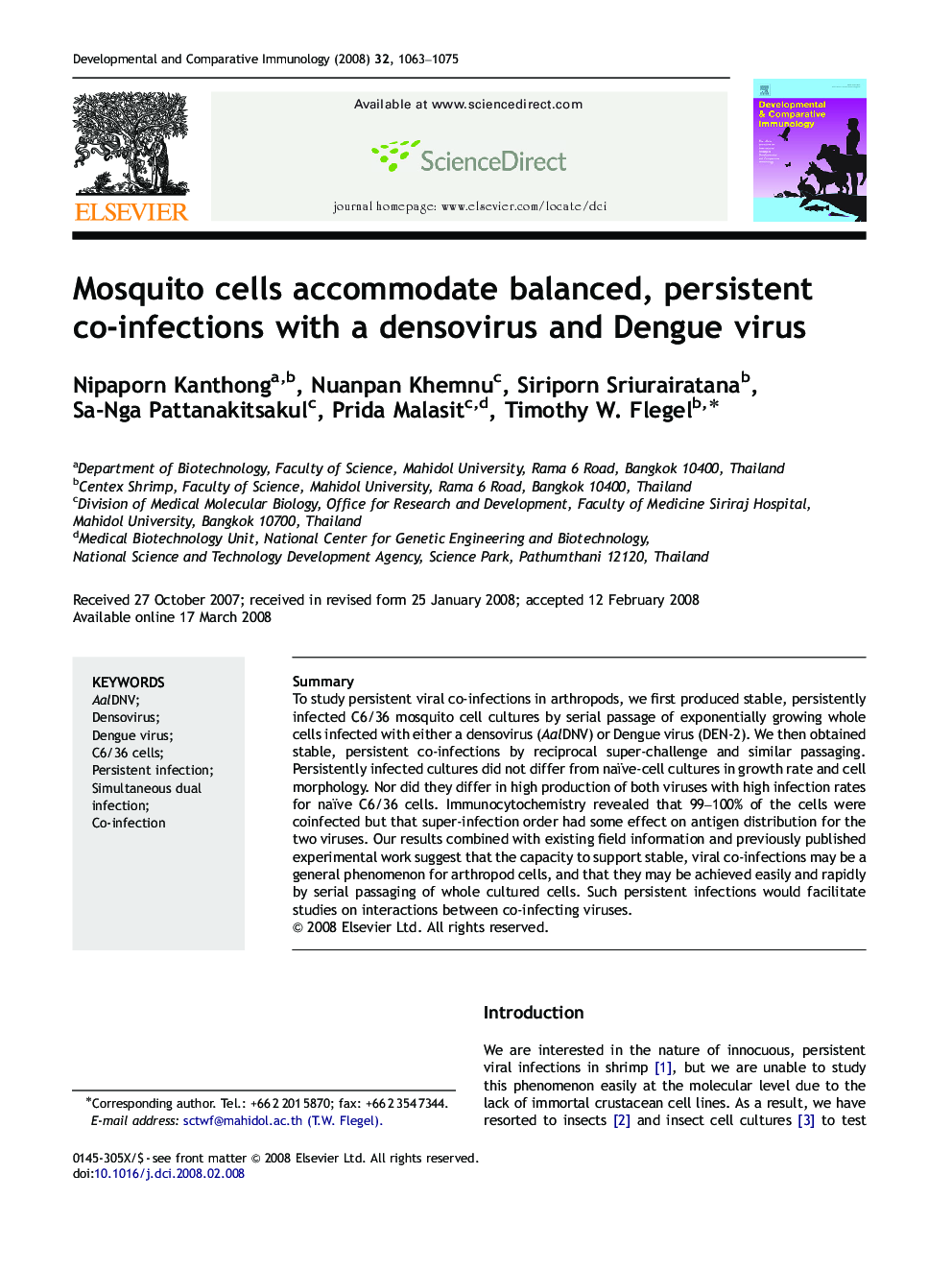| Article ID | Journal | Published Year | Pages | File Type |
|---|---|---|---|---|
| 2429792 | Developmental & Comparative Immunology | 2008 | 13 Pages |
SummaryTo study persistent viral co-infections in arthropods, we first produced stable, persistently infected C6/36 mosquito cell cultures by serial passage of exponentially growing whole cells infected with either a densovirus (AalDNV) or Dengue virus (DEN-2). We then obtained stable, persistent co-infections by reciprocal super-challenge and similar passaging. Persistently infected cultures did not differ from naïve-cell cultures in growth rate and cell morphology. Nor did they differ in high production of both viruses with high infection rates for naïve C6/36 cells. Immunocytochemistry revealed that 99–100% of the cells were coinfected but that super-infection order had some effect on antigen distribution for the two viruses. Our results combined with existing field information and previously published experimental work suggest that the capacity to support stable, viral co-infections may be a general phenomenon for arthropod cells, and that they may be achieved easily and rapidly by serial passaging of whole cultured cells. Such persistent infections would facilitate studies on interactions between co-infecting viruses.
